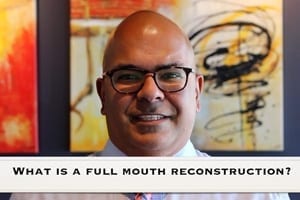Understanding and Overcoming TMJ: A Path to Comfort and Wellness
Clenching or grinding teeth, often in response to stress, can lead to temporomandibular joint (TMJ) disorder. This condition, known as bruxism, can cause significant harm to both teeth and jaw tissues.
Signs of TMJ Disorder:
Tooth Decay: Constant grinding can damage your enamel, leading to decay and weakened teeth.
Jaw Pain: Persistent motion can strain jaw muscles, resulting in chronic pain and discomfort.
Lockjaw: In severe cases, TMJ disorder can lead to a temporary inability to open or close the jaw, known as lockjaw.
Difficulty Eating: TMJ disorder may also affect your ability to chew properly, potentially impacting nutrition.
Options for Treating TMJ:
Initial Assessment: During routine dental exams, we evaluate patients for signs of TMJ dysfunction. Our treatment goals are to alleviate symptoms, prevent further dental damage, and address any underlying bite alignment issues.
TMJ Treatment Options:
BOTOX® Therapy: BOTOX® injections into the masseter muscle can effectively reduce pain by relaxing the jaw muscles and easing tension.
Mouth Guard: A custom-fitted mouth guard can protect your teeth from grinding and help alleviate TMJ symptoms.
Surgical Options: In some cases, surgery might be necessary to address more severe TMJ issues.
Managing TMJ Pain with BOTOX®:
BOTOX® is increasingly recognized as a viable treatment for TMJ disorder, offering relief from the chronic pain and tension associated with this condition.


Your Smile, Your Solution
We’ll walk you through each option and recommend the best fit based on your unique needs, preferences, and goals. Whether you’re looking for something long-lasting or need a temporary fix while you consider implants or other options, we’re here to make sure your smile stays complete and confident.
Schedule Your Consultation Today
Call or Text (770) 321-5558 to book your personalized consultation. Our experienced team will guide you through your partial denture options and help you choose the one that’s perfect for your smile.





